March 10 - 16, 2013: Issue 101
Sir Francis Anderson
3 September 1858 - 24 June
1941
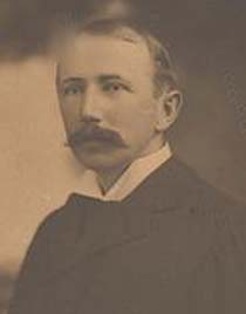 Professor Pitt
Corbett's picnic last week was certainly most enjoyable and enjoyable-first, the
journey on the steamer to Manly, and the drive by coach to the rendezvous, the
lunch and the suceeding ramble, and then the tea at Professor Anderson's
charming house at Pittwater. It was all most delightful. The weather
was everything that could be desired, and the arrangements were perfect.
Everybody had a lovely time, and the outing will certainly live as a red-letter
day in the memory of everyone who had the happiness to be present. Our
Social System. (1893, September 16). Australian Town and
Country Journal (NSW : 1870 - 1907), p. 34. Retrieved from http://nla.gov.au/nla.news-article71189236
Professor Pitt
Corbett's picnic last week was certainly most enjoyable and enjoyable-first, the
journey on the steamer to Manly, and the drive by coach to the rendezvous, the
lunch and the suceeding ramble, and then the tea at Professor Anderson's
charming house at Pittwater. It was all most delightful. The weather
was everything that could be desired, and the arrangements were perfect.
Everybody had a lovely time, and the outing will certainly live as a red-letter
day in the memory of everyone who had the happiness to be present. Our
Social System. (1893, September 16). Australian Town and
Country Journal (NSW : 1870 - 1907), p. 34. Retrieved from http://nla.gov.au/nla.news-article71189236
Born at Glasgow, Scotland, the son of Francis Anderson, manufacturer, and his wife Elizabeth Anna Lockart, née Ellison, Francis Anderson junior was educated at Old Wynd and Oatlands public schools. By 14 he had become a pupil-teacher. In 1876 he matriculated at the University of Glasgow (M.A, 1883), where he had a distinguished career, winning the prize for the outstanding graduate of his year, and was awarded the Clark philosophical fellowship which entailed assisting Professor Edward Caird for two years. He taught English literature during the absence of this professor and studied in the theological faculty with the intention of entering the ministry. In 1886 he migrated to Melbourne on the Orient, arriving May 1886 at 27 years of age Rev. Francis Anderson to be an assistant to Rev. C. Strong in his Australian Church, which had been founded the year before by more liberal ex-members of the traditional Scots Church.
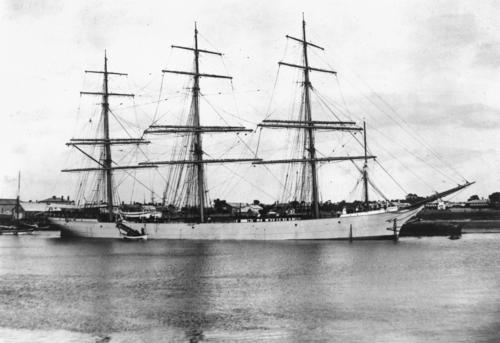
Above: Francis Anderson, 1902. Right: The Clipper Orient
Here he worked at looking after the disadvantaged and established a Literary Society but his acumen and scholarship was soon sought elsewhere:
THE REV. FRANCIS. ANDERSON. A social meeting of the congregation of the Australian Church, Melbourne, was held last week to bid farewell to the Rev. Francis Anderson, M.A., who has accepted the position of lecturer on moral philosophy in the Sydney University. There was a large attendance and the chair was occupied by the Rev. Dr. Strong, who said he regretted the duty which they had to perform that evening. Mr. Anderson's relations with himself had been most pleasant and he had been in thorough sympathy with the aims and principles of their church. Mr. Jaraea Clezy, M.A., in the name of the congregation, bade Mr. Anderson a hearty farewell, remarking that that gentleman had secured the friendship and goodwill of every member of the congregation. His departure was a loss to the pulpit of Victoria. Mr. Anderson, who was warmly received, said he sincerely regretted leaving the Australian Church. At the same time, he felt it his duty to adopt that course; for he was going to work for which he was specially trained, and to the work also for which, he believed, he was best qualified. He fully appreciated the very kind and untiring support and sympathy he had received from the congregation. For the future of the Australian Church he had no fear. That its influence had already been for good was, proved by the f act that sermons and lectures had been delivered in orthodox churches during the last few months which even three or four years ago would have been condemned as heretical. During the evening a purse containing 75 sovereigns was presented to Mr. Anderson, on behalf of the ladies of the congregation, and another of 25 sovereigns from the Literary Society, which has been established in connection with the church, and. To which Mr. Anderson has rendered great assistance. THE REV. FRANCIS ANDERSON. (1888, May 12). Australian Town and Country Journal (NSW : 1870 - 1907), p. 10. Retrieved from http://nla.gov.au/nla.news-article71097467
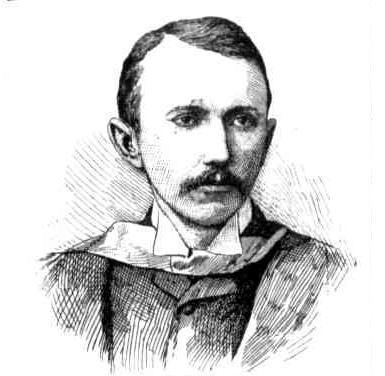 A
Distinguished Scholar. FRANCIS ANDERSON, M.A.
A
Distinguished Scholar. FRANCIS ANDERSON, M.A.
The Senate of the Sydney
University, having decided to establish a lectureship in logic and
mental philosophy, has been fortunate in the selection of Mr Francis
Anderson, M.A., of Glasgow (Scotland), as the first occupant of that chair. Mr.
Anderson was born in Glasgow on September 3, 1858, and, consequently, is quite a
young man. He is descended from Scottish and English families who settled in the
west of Ireland in the reign of James I. He was chiefly educated in the famous
University of Glasgow, where he was successively student, graduate, fellow, and
assistant professor (of English literature). During his university career he
secured numerous prizes and honors ; the most noteworthy being one of the "Clark
philosophical fellowships," which are the highest prizes, short of a
professorship, which the University of Glasgow offers. Mr. Anderson took his
M.A. degree in 1883 with first-class honors in logic and mental philosophy.
During the latter part of his course he attended the theological classes in his
University, qualifying as a graduate of the Church of Scotland; but he never
applied for any ministerial charge. In 1886 he came to Melbourne to assist his
friend Dr. Strong under a two years' engagement, but resigned six months ago in
order to return to the work of University teaching. He organised and conducted
in Collingwood a workingmen's class for the study of social and economic
subjects.' The lectureship in Mental Philosophy, instituted in the Sydney
University, represented what he regarded as his true mission in life, and the
work for which he had been specially trained. The University authorities in this
city have been fortunate enough to secure his services. It is a pleasant thought
for Scotsmen that the teachers of mental philosophy in the two' leading
universities of Australia are both Scottish; But, then Scotsmen have always been
distinguished in this branch of learning. Our
portrait is from a photograph by Messrs. Charlemont and Co., of Sydney.
A Distinguished Scholar. (1888, June 16).
Australian Town and Country Journal (NSW : 1870 - 1907), p. 24.
Retrieved from http://nla.gov.au/nla.news-article71098703
Mr Anderson also undertook teaching the evening classes in English at the University. He was popular with his students, adopting a similar kindness and exhortation to 'think for themselves' in all his classes, to use thier minds to bring out the best in themselves, a way of thinking that parallels the fundamentals of spirituality and a progressive religion. In his lecture-room 'questions were asked and discussion encouraged'. Whatever subject he lectured on, 'his exposition was always delightful; his early training in the classics, his beautiful voice, his dramatic sense, all joined to produce a profound effect upon his classes'. Former student and Rhodes scholar G V Portus once wrote 'Hating dogma himself', and, 'he would not be dogmatic to others. Fighting bureaucracy outside, he encouraged criticism from his students within'. His ideals, although staunchly based in Christian ideals and morals, suited the University and the rising psyche of Australia itself. Already highly esteemed, he was named a Professor through the 1889 Challis bequest, endowed by John Henry Challis (1806-1880), valued at about £200,000, to Sydney University and became the first Challis professor of logic and mental philosophy.
Reforms to education became one of this gentleman's life long missions. Education in Sydney prior to Francis Anderson was based on teaching a child by rote. The idea of a New Education, which would focus on developing a person's creative skills, based on a perception people learn more from engaging with material and working as teams, began to be shipped across the oceans from England. It was Francis Anderson who threw out the first challenge to the established order though. In his June 1901 Address to the Teacher's Association meeting expressed opposition to a system of teaching that adhered solely to systems and mechanisms or 'Neither the human spirit nor true learning was served by hundreds of children learning their geography like parrots' (1).
Professor Anderson published a pamphlet On Teaching To Think in 1903 to further spread this idea and ideal and wrote regular letters to the newspapers of the day;
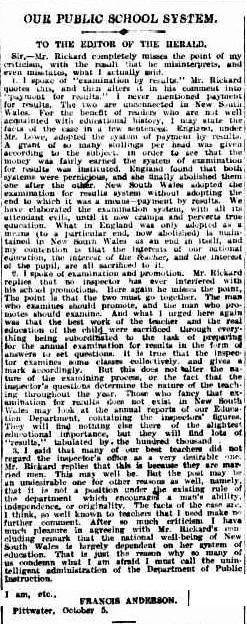 Letter (left): OUR PUBLIC SCHOOL SYSTEM. (1903, October 7).
The Sydney Morning Herald (NSW : 1842 - 1954), p. 6. Retrieved from http://nla.gov.au/nla.news-article14573669
Letter (left): OUR PUBLIC SCHOOL SYSTEM. (1903, October 7).
The Sydney Morning Herald (NSW : 1842 - 1954), p. 6. Retrieved from http://nla.gov.au/nla.news-article14573669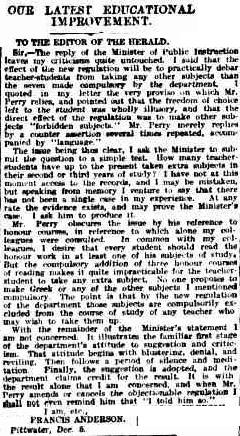
Second letter (right): OUR LATEST EDUCATIONAL IMPROVEMENT. (1903,
December 8). The Sydney Morning Herald (NSW : 1842 - 1954), p. 4. Retrieved from
http://nla.gov.au/nla.news-article14585063
All this incessant work, passionate though he was, needed moments of respite. Soon after being appointed a Professor, Francis Anderson purchased land at Pittwater and had premises built which were visited for 'tea' during the first week of September 1893.
His growing success, warm nature and open expression of fairness regardless of gender brought him into contact with like minded individuals. One of these was Maybanke Wolstenholme (nee Selfe), a woman who had been abandoned by her husband and opend a school for girls in 1882. They would have met at the university where Maybanke was an office-holder for the Sydney University Women's Society. In March 1899 they were married with Presbyterian rites at Balmain, beginning almost three decades of happiness for both.
Of their home at Pittwater, from the lady herself:
"As to the domestic virtues, I haven't much time to talk about their cultivation, but I try to practise them at our home, at Bayview there is almost a farm to look after. You should see our roses, and quite as important our vegetables. I work a great deal in the garden, and in my spare time attend to the comforts of about 70 fowls. PRACTICAL PHILANTHROPIST.MRS Francis Anderson (1913, July 14). Barrier Miner(Broken Hill, NSW : 1888 - 1954), p. 7. Retrieved from http://nla.gov.au/nla.news-article45212152
This home, a substantial stone residence, was also a place used by her children from her first marriage:
COUNTRY WEDDINGS. Wolstenholme-Kite.-The marriage took place on November 28 at the Holy Trinity Church, Kelso, N.S.W., of Miss Ethel Kite, second daughter of the late Mr. William Kite, of Woolstone, Kelso, to Mr. Edmund K. Wolstenholme, youngest son of Mrs. Anderson, Bayview, Pittwater. The Ven. Archdeacon Oakes performed the ceremony. The church was beautifully decorated with flowers and greenery, all up the aisle, arches of flowers were arranged from each pew, the ends of which were arranged with bunches of whitef lowers. The bride, who was given away by her brother-in-law, Dr. Brooke Moore, wore a white French muslin gown, trimmed with Valenciennes lace and embroidered muslin, white hat, trimmed with lace tulle and roses. Miss Moira Moore acted as bridesmaid. She wasprettily dressed in white muslin, with a pale blue sash, and a white chip hat, with pale blue rosettes, and carried a bouquet, which, with her gold bangle, were presents of the bridegroom.
After the ceremony a reception was held by Dr. and Mrs. Brook Moore, and later Mr. and Mrs. Kay Wolstenholme left for Bayview, Pittwater, the bride wearing a blue and white check silk, hat to match, with roses. Among the guests were Professor and Mrs. Anderson, Dr. and Mrs. Herbert Marks, Hon. C. E. Pilcher, Colonel and Mrs. Lassetter, Mr. and Mrs. Peter Rabett, Hon. George Lee and the Misses Lee, Mr. and Mrs. Herbert Suttor, Mr. and Mrs. J. M'Phillamy, the Misses M'Phillamy, Mr. and Mrs. C. R. M'Phillamy, Miss Phyllis M'Phillamy, Miss Kirwan, Mrs. Claude Robert-son, Mr., Mrs., and the Misses Norman Suttor,Mr. and Mrs. Harold M'Intosh, Mr. and Mrs. Crago, Dr. and Mrs. Hurst, Dr. and Mrs. Machattie, Mr. and Mrs. Fegan, Dr. Murray, Mrs. John Marks, Miss Irene Marks, and Mr. Theo. Marks, Mr. and Mrs. Deakin, Mr. J. H. M'Intosh, Miss M'Intosh and Miss F. M'Intosh, Dr. Lucy Gullett, Mr. Martin, Mr. H., Mrs. And Misses Suttor, Mr. and Mrs. R. L. Gilmour, Mr. and Mrs. Stewart, Mr., Mrs., and Miss Lindsay, Mr. H. Macfarlane, Mr. Jagoe, Mr.Turrell, Mr. and Mrs. W. Lee and the MissesLee, Mr. and Mrs. A. Stewart, Dr. Bassett, and the Misses Bassett, Mr. and Mrs. Ivatt, Mr. and Mrs. M'Phillamy, Mrs. Barton, Hon. F. and Mrs. Jago, Smith, Ven. Archdeacon and Mrs. Oakes, Misses Cousins, Mr. and Mrs. Gibsone,Mr. B. Kenny, Mrs. H. Traill, Mrs. Forrest, Mr. and Mrs. Britten, Miss Barton, Mr. Kelynack. Mrs. Norman Kite, and Mr. Roland Lee. Society in Town and Country. (1907, December 4). Australian Town and Country Journal (NSW : 1870 - 1907), p. 43. Retrieved from http://nla.gov.au/nla.news-article71599402
This property was offered for sale in March, 1921 (see lithograph below), the same year he retired and was made emeritus professor. Maybanke died while they were on an overseas trip in 1927 and he remarried on his return. Josephine Wight was his new partner.
Professor Anderson had a fervent passion for peace and became the New South Wales President of the league of Nations. Early in the 1930's the ominous rumblings in Europe spurred him to new work:
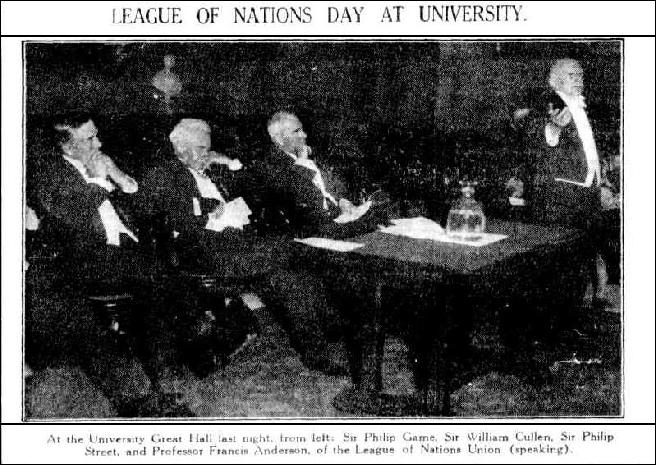
LEAGUE OF NATIONS DAY AT UNIVERSITY. (1931, August 28). The Sydney Morning Herald (NSW : 1842 - 1954), p. 12. Retrieved from http://nla.gov.au/nla.news-article16811247
THE WAY TO WORLD PEACE. PROFESSOR FRANCIS ANDERSON ON BROTHERHOOD. "The world wants peacemakers, not more pacifists," remarked Emeritus Professor Francis Anderson, address in the education section of the Science Congress in Sydney on the teaching of international, civics in schools. Through "general lessons" the salient facts of the interdependence of nations and the inter-connection of all spheres of social life might be brought home to the understanding and imagination of scholars, so that they gradually became acquainted with the moral- and spiritual forces-which guided mankind. They might, thus furnished, leave school with an unconscious but rational optimism, a faith in the strength of the human will and the value of human brotherhood. Such education could be given right through the school in all stages, provided the teacher remembered that in each stage the child apprehended and comprehended after the fashion of a child. The direct lesson must be supplemented by indirect teaching, through the media of other school subjects such as literature, history and geography. What was wanted was the liberalising- the vitalising of the energies of the pupil, leading him to achieve his own education accord=ng to his 'gifts and capacities. The essential task, Professor Anderson said, was to transfer the ideals that guided and inspired the relations of the citizen to his fellow citizens to the relations-between one country and another. Greater tolerance would come from closer intercourse wind fuller knowledge. An exclusive and selfish nationalism carried its own punishment in economic disaster and spiritual degeneration. Through his general school' studies the pupil might be-brought to see that the world was-.becoming more of a unified whole, moral as well as material, and as such could not continue to live under the control of a number of contradictory and hostile consciences. An international conscience had always in some fashion existed, but now for the first time there was an organ for the expression of that conscience in -the League of Nations. - War as a means of deciding disputes between nations might in time be regarded as "politically unnecessary, economically unprofitable, and morally abhorrent. “There was a better way, and it was hoped that the world, through the League of Nations, had entered –on that better way. THE WAY TO WORLD PEACE. (1932, September 24).Frankston & Somerville Standard (Vic. : 1921 - 1939), p. 6. Retrieved from http://nla.gov.au/nla.news-article73525255
Although he worked hard to prevent the new war coming when it had he then worked to look after those who were suffering as a result of this conflict and was known for making generous donations to any cause he justly supported:
POLISH RELIEF FUND. Sir Francis Anderson's
Appeal. Sir Francis Anderson, chairman of the Polish War Victims Relief Fund,
said yesterday that the tragic plight of Poland called for great sacrifices by
the Australian people in common with the people of Britain and France. "Poland
had had the courage to stand up not only against Russia, but also against the
tremendous military might of Germany," he said "We must not forget for a moment
that Poland is our ally to-day, and that Poland alone has suffered the horrors
of Invasion and actual occupation. The very least we in Australia can do is to
subscribe liberally to the fund for the relief of more than 200,000 Poles who
managed to escape from their homeland, but who are now utterly destitute "
Subscriptions to the Polish relief fund maybe sent to the Appeal offices, 76
Pitt Street, Sydney. POLISH RELIEF FUND. (1940, January
4). The Sydney Morning Herald (NSW : 1842 - 1954), p. 8.
Retrieved from http://nla.gov.au/nla.news-article17650889
In the 1936 King's Birthday Honours he was knighted for "educational and social welfare services". He was one of the founders of the Australasian Association of Psychology and Philosophy and that year published for it a monograph, Liberty, Equality and Fraternity; As first editor of its Journal in 1923-26, he was liked for his 'Notes from the editor's chair', as well as the material he accepted from local and overseas authors, revealed the breadth of his interests. (2)
The pace of all his duties would have worn a man half his age out. In June 1941 he died at his home, by then at Woollahra, close to all the city action, and was creanted with Anglican rites:
SIR FRANCIS ANDERSON DEAD. Leader in Educational Reform. SYDNEY, June 24.--The death occurred today of Sir Francis. Anderson, Emeritus Professor of Philosophy at the University of Sydney and president of the League of Nations Union of New South Wales. He was aged 82.Sir Francis Anderson was one of the most distinguished figures in the cultural life of Australia. He played a notable part in educational reform in New South Wales many years ago and later he devoted considerable time to the ideals and aims of the League of Nations. Twice dean of the Faculty of Arts, he retired early in 1922 from the University. where his interests covered a wide field. Sir Francis was born in Glasgow in1858. He accepted the position of Assistant-Minister to the Rev. Dr. Strong at the Australia (Presbyterian) Church in Melbourne. Two years later he came to Sydney as lecturer in philosophy at the University of Sydney. Later he was appointed to the Challis Professorship of and Mental Philosophy, and he occupied that chair until his retirement from the University. SIR FRANCIS ANDERSON DEAD. (1941, June 25). The West Australian (Perth, WA : 1879 - 1954), p. 6. Retrieved from http://nla.gov.au/nla.news-article47149701
SIR FRANCIS ANDERSON. AN
APPRECIATION.
P.B.C. writes:-"For magnanimity and public spirit. Sir Francis
Anderson had few peers. He never thought of himself, but only how to bring out
what was best in others. It was he who laid the corner-stone of Australian
philosophy. He built a bridge from the old education to the new and sought to
enthrone international right and justice. To his independent and devoted mind a
thousand scholars, statesmen, soldiers, sages owe their inspiration. At the cost
of health and ease, he gave his later years to world politics, the avoidance of
wars of aggression, to which the League of Nations is the only way. History
already records his work, and his name will not be forgotten but it is in the
hearts and minds of his friends and students that the lamp of memory burns with
the brightest and purest flame. That which he used to say to us was true at
least of himself: 'The kingdom of God is
within you." SIR FRANCIS ANDERSON. (1941, June
30). The Sydney Morning Herald (NSW : 1842 - 1954), p. 3. Retrieved
from http://nla.gov.au/nla.news-article27944989
References:
1. Francis Anderson, The Public School System of New South Wales, Angus & Robertson, Sydney, 1901; Craig Campbell and Geoffrey Sherington, 'A Genealogy of an Australian System of Comprehensive High Schools: The Contribution of Educational Progressivism to the One Best Form of Universal Secondary Education (1900–1940),' Paedagogica Historica, vol 42, no 1 & 2 , 2006
2. W. M. O'Neil, 'Anderson, Sir Francis (1858–1941)', Australian Dictionary of Biography, National Centre of Biography, Australian National University, http://adb.anu.edu.au/biography/anderson-sir-francis-5015/text8341
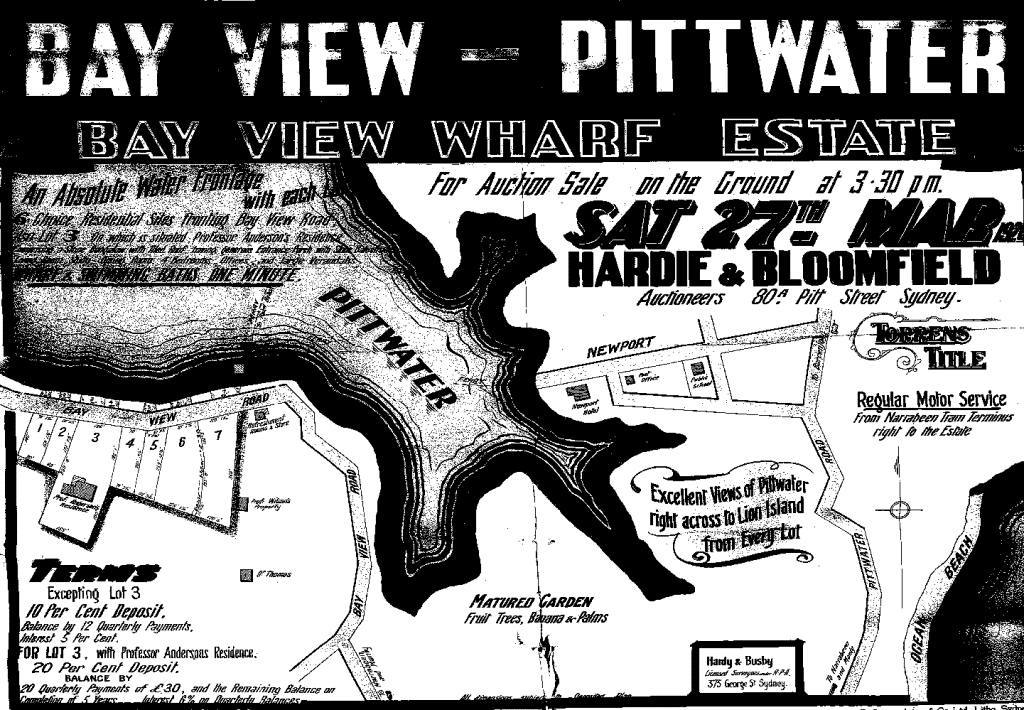
Sir Francis Anderson threads collected and collated by A J Guesdon, 2013